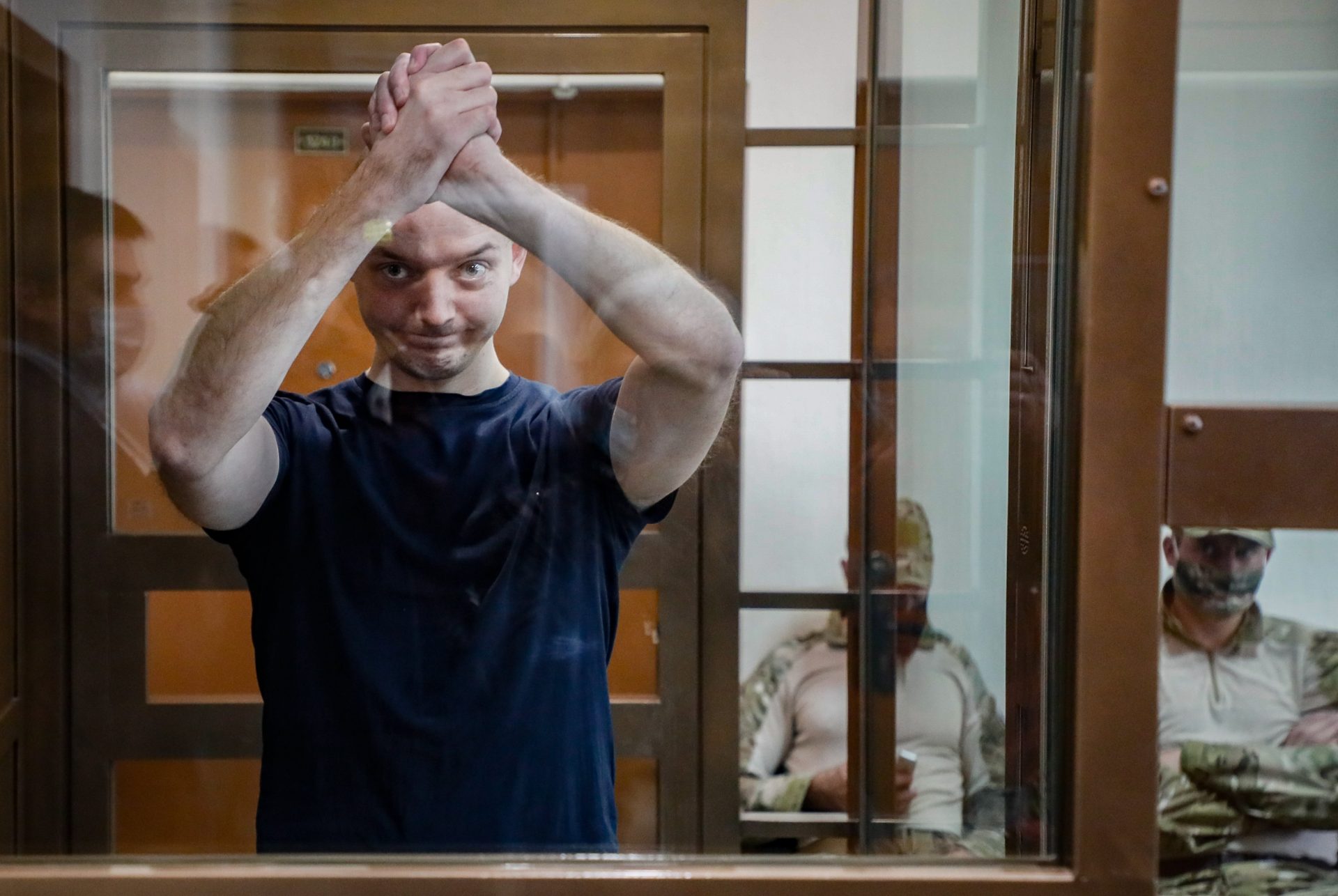According to TASS, the Russian Supreme Court upheld today the verdict of a first instance court from last September, sentencing journalist Ivan Safronov to 22 years in prison for treason. He was accused of collaborating with Czech intelligence, but he firmly denies any wrongdoing. Following the appeals court’s confirmation of the verdict last December, he commenced serving his sentence in a Siberian penal colony, rendering the decision final.
During today’s closed-door hearing due to the case’s secrecy, the Supreme Court announced that the verdict of the first instance court remains unchanged, dismissing the defense complaint. Journalists in attendance could only witness the court’s final decision announcement.
Ivan Safronov, a former reporter for Vedomosti and Kommersant newspapers, was arrested in July 2020 by Russia’s FSB secret service and charged with treason while serving as an adviser to the head of Russia’s space agency, Roskosmos. According to investigators, he was allegedly recruited by Czech intelligence in 2012. The FSB claimed that Safronov divulged classified information about Russian arms supplies to post-Soviet states, the Middle East, Africa, and the Balkans, which could potentially jeopardize Russian security and be used against NATO countries.
From the outset, Safronov has vehemently denied any guilt and refused to enter into a plea bargain with investigators to obtain a reduced sentence. He maintains that his involvement was solely in journalism and that he never had access to state secrets. He believes the accusations are the result of the Russian secret service’s efforts to manufacture spies when they have difficulty apprehending real ones.
After the initial verdict, Safronov’s defense lawyer, Dmitry Katchev, stated that his client was penalized for merely doing his job. Some independent Russian media outlets previously reported that Safronov’s punishment was a consequence of his reporting on Russian military contracts, which had apparently angered the Defense Ministry. The defense has called for an acquittal.
Czech Foreign Minister Jan Lipavsky dismissed the claims of Safronov’s cooperation with Czech intelligence as utterly baseless, comparing them to the credibility of claims that Russia was liberating Ukraine. He referred to them as “nonsense,” as reported by Czech Television and Czech News Agency in September.
The severity of Safronov’s sentence, surpassing typical punishments handed down for murder in Russian courts, is perceived as a significant blow to Russian media in light of the Kremlin’s escalated crackdown on free speech since the invasion of Ukraine in February, according to a report by Reuters last September.


















